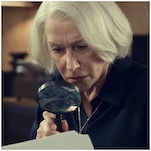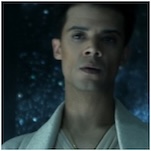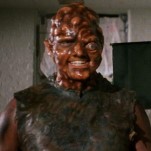The Villainess

A note for the poor, unfortunate sap yet to be called on to direct Marvel’s forthcoming Black Widow film: As part of your homework for this project, you need to watch Jung Byung-gil’s latest production, the action melodrama The Villainess. It’s a masterclass in what to do and what not to do when crafting an action-oriented film around a female lead, more so than its contemporaries and predecessors, from Atomic Blonde to Haywire. Do give the lead a robust, layered backstory. Do not surrender to easy means of conveying said backstory to your audience, lest you sacrifice action. Do respect your protagonist enough to let her get messy and to let her narrative be complex. Don’t mistake “complex” to mean “comically abstruse.”
The list goes on. You’re better off just watching the thing, if not for educational purposes than because it’s a bloody good time at the movies when it’s satisfying its premise. When it isn’t, it’s a disappointment that verges on the unbearable. There’s no good reason The Villainess needs to be this way; it opens in propulsive fashion, coopting the first person POV lens of Hardcore Henry as Jung’s antiheroine, Sook-hee (played by Min Ye-ji in flashbacks, and Kim Ok-bin in the film’s present), mows down scores of faceless bad guys while on a mission of revenge. The particulars of that mission are kept from us to start with, and revealed over the course of the film as Sook-hee is recruited into South Korea’s intelligence bureau, intent on putting her impressive talents for murderin’ to good use.
The Villainess gains flab from there. Sook-hee is trained, she rises up in the ranks, she’s given a new identity and her first official assignment, and she becomes a mom. She has a bun in the oven from the word go, a parting shot by her ex-husband (Shin Ha-kyun), who taught her to kill way back in the day. So for a stretch, the film resembles a mushy romantic flick in which the agent responsible for watching over Sook-hee (Sung Joon) falls in love with her from a distance, and wriggles his way into her life by dint of his duties. (They even have a meet cute. It’d be plain old adorable if its interpersonal politics didn’t feel so icky.) Occasionally, all the faraway glances and restrained flirtations are interrupted by scenes where Sook-hee goes out to butcher a target, but the emphasis here is on “occasionally.”
-

-

-

-

-

-

-

-

-

-

-

-

-

-

-

-

-

-

-

-

-

-

-

-

-

-

-

-

-

-

-

-

-

-

-

-

-

-

-

-








































